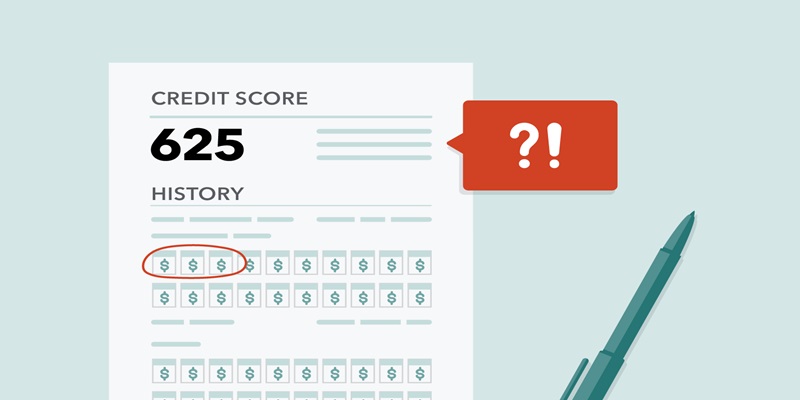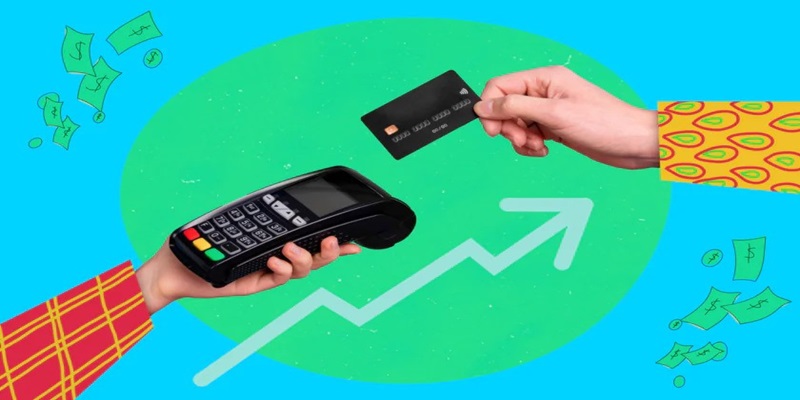How To Improve Your Credit Score In 6 Months?
From loan and credit card approvals to determining your interest rates, your credit score is arguably the most critical aspect of your financial life. If you try to improve your creditworthiness, you could significantly improve in just six months. Whether building from ground zero or giving a good score a boost, the next half-year may make all the difference in your financial future. Throughout this post, we'll show you the best ways to improve your credit score and set yourself up for long-term economic success.
How Does Your Credit Score Work?

A credit score is a three-digit number representing your credit history, generally running on a scale from 300 to 850. The higher your score, the likelier you will get approved for loans and credit cards on favourable terms. Your score is determined by information on your credit report, which gives an overview of how you use credit and repayment over time.
Factors Affecting Your Credit Score
Following is a rundown of critical factors that affect your credit score, including:
Payment history-35% of your score
Credit utilization-30%
Length of credit history-15%
Credit mix-10%
New credit inquiries-10%
Knowing these, you will be able to understand where to improve. For instance, paying your debts on time and keeping a low credit utilization will improve your score.
Identify And Dispute Errors In Your Credit Report

Your credit report is what your credit score is based on. Ensuring it's accurate is the best way to improve your score in just six months. Pull free copies of your credit reports from all three major credit bureaus: Equifax, Experian, and TransUnion.
Go Through All Reports Carefully
Each report should be thoroughly scrutinized for errors. Look out for the following:
Mistakes in your info
Accounts that are not yours
Late payments that were misreported
Old negative information
Duplicate accounts or debt
Act Fast and File Disputes
Once you find some errors, disputing them as soon as possible is a good idea. Every credit bureau has availed Online dispute resolution mechanisms, making challenges easier. Clear explanations are provided, and necessary supporting documents are presented if possible.
Follow up on Disputes
The credit bureaus will have 30 days to investigate your dispute and reply. Mark your calendar and follow up if you don't hear from them. If the error is fixed, request that the bureau send corrected reports to lenders who received insufficient information in the past six months.
Monitor Your Reports
Checking once is not enough. Set up a reminder to check your credit reports every few months. This habitual alertness catches new errors in a timely fashion and also confirms that those items you disputed indeed stay corrected, thereby keeping your credit score on its upswing.
Pay Your Bills In Full And On Time
The most significant determinant of your credit score is your history of making on-time payments. About 35% of your credit score is based on your history of making timely payments. You can realize significant improvements in your credit score within six months if you make all your bill payments on time.
Setup Automatic Payments
To avoid missing a due date, you can arrange to have bills paid automatically through your bank or financial institution. This rules out human error; you cannot forget the due date. Most lenders and credit card companies allow this, where you can arrange to pay your bills directly from your bank account.
Set Reminders
Suppose you would like more hands-on experience with bill paying and setting up reminders for each due date. Take advantage of your smartphone's calendar or a budgeting app, and schedule a reminder a few days before each approaching bill due date. You have time to ensure the funds are in your account.
Prioritize Accounts Reporting to Credit Bureaus
As much as each bill is essential, you must make priority payments for any credit account that reports to the credit bureaus. Those accounts usually include credit cards, personal loans, and mortgages. Payment performance on these accounts has the most direct bearing on your credit score. As hard as it is to struggle and pay every bill monthly, making payments that keep these accounts current preserves your credit rating.
Increase Your Credit Utilization Ratio

One of the most significant factors in your credit utilization ratio is your credit utilization ratio. That is the ratio of credit used versus credit available. To improve your score, you would want it to be under 30%.
Pay Off Outstanding Balances
Start paying off your existing credit card balances. You should begin with the ones with the highest utilization. Make small payments if you have to, but if you can, try to make a few payments over a month.
Request Credit Limit Increases
Call your credit card company and ask for a credit limit increase. Once you do that, your utilization ratio drops like a stone instantaneously, presuming you don't spend more. Most credit card companies now let you request this through your online account or mobile app.
Open Another Credit Card
Opening another credit card sounds crazy, but doing so lowers your overall utilization ratio because the total available credit goes up. You do have to be very careful here because it can hurt your credit score for some time due to the hard pull.
Not closing old credit card accounts, even if you're not using them. Those help your overall available credit and can keep your utilization ratio lower. Place small, regular purchases on those cards to keep them active.
Become An Authorized User On Someone Else's Account
Being added as an authorized user on a friend's, family member's, or spouse's credit card account might be the thing that gets your credit score moving in the right direction. The beauty of this strategy is that you'll benefit from the other person's good credit habits without the responsibility and hassle of managing the account yourself.
How it works?
When you become an authorized user, the history of that account will generally be reported to credit bureaus under your name. If the primary account holder has a long history of on-time payments and low credit utilization, your score can dramatically improve based on that positive track record.
Choosing the Right Account
Shop around for an account. What you want is a primary account holder who has:
An excellent payment history
Low credit utilization-ideally less than 30%
An older account
Lovers, siblings, parents, friends, and even grandparents are ideal because they will have more confidence in entrusting you with this setup.
Possible Risks
Although this method can be very effective, there are associated risks. You may hurt your credit score if the primary account holder fails to pay or maxes out the card. Furthermore, some credit-scoring models may not give as much weight to authorized user accounts.
How You Can Maximize Your Benefit?
To get the most from being an authorized user:
The account holder should continue using the card responsibly.
Regularly monitor the account to identify any problem that may crop up quickly.
You can be an authorized user on multiple accounts to diversify your credit profile further.
Remember, this is good but works even better with other strategies. This is your springboard to all credit accounts and good financial responsibility.
Charting Your Path To Financial Success
Religious adherence to these strategies over six months will show a marked improvement in your credit score. After all, increasing creditworthiness is like treading upon a long path-it takes quite a bit of time and lots of effort. So, focusing on your aims, tracking performance regularly, and rejoicing over small successes en route will help. With each gradual improvement in credit score, possibilities of better loan terms, low interest rates, and flexibility in finances increase correspondingly.